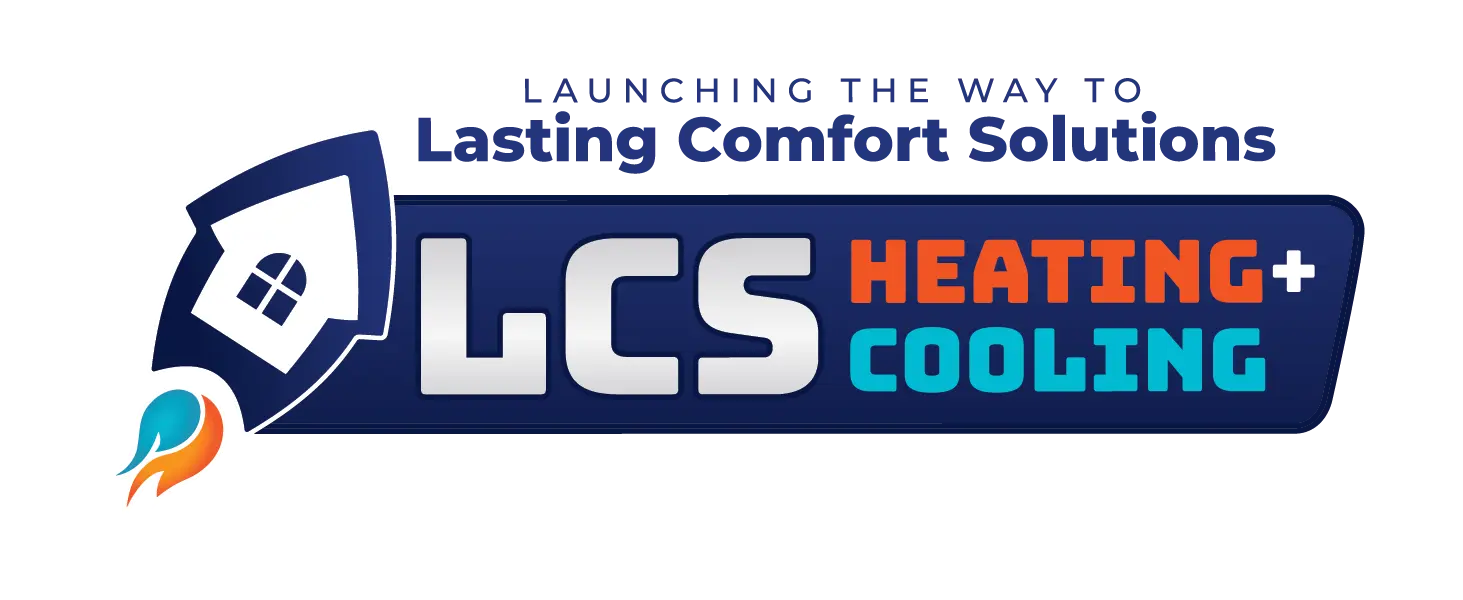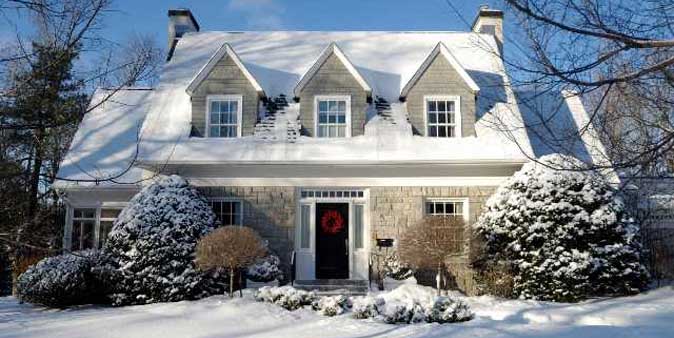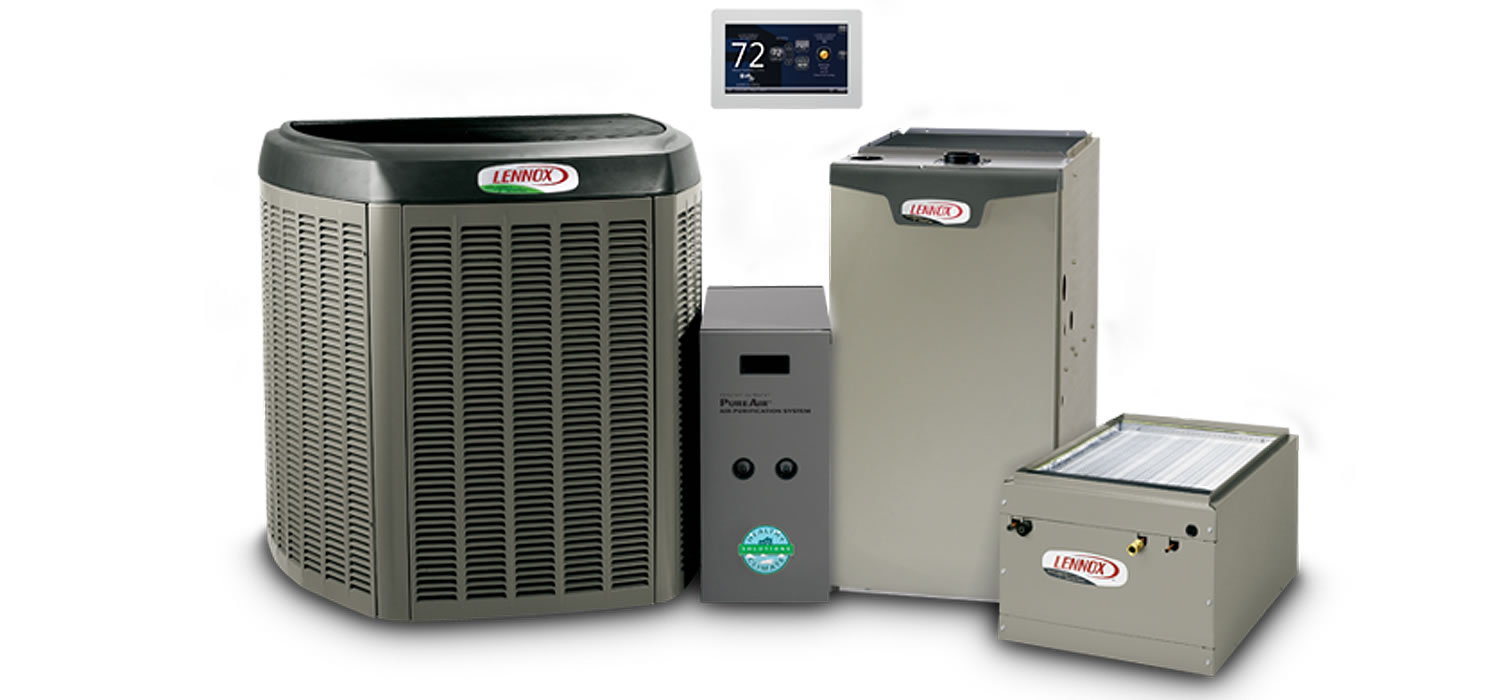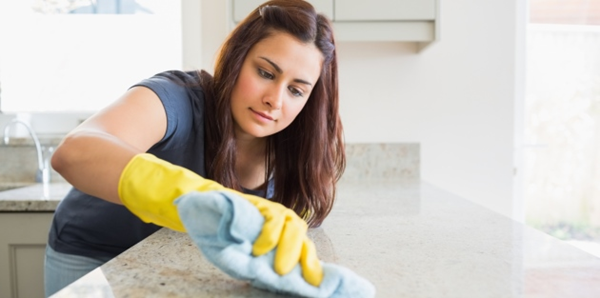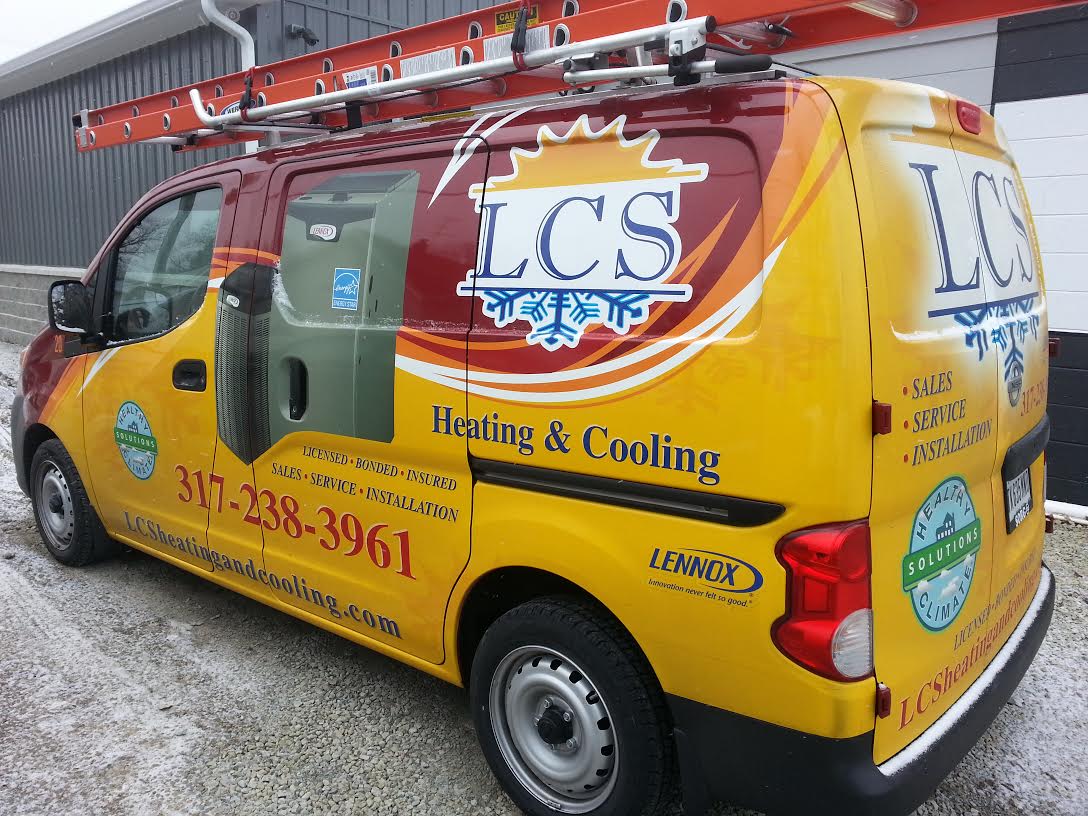We've received several calls this winter about rising utility costs. People have been concerned because they're seeing upwards of $400-$500 electric bills. Yikes! We'd like to share some tips on what you can do to find out if you're experiencing "normal" bills or if there might be a problem causing them to be high.
There are things that can be done to your home to increase efficiency. These things include insulating, caulking, checking for drafty areas, etc. For our purposes now though, we're going to assume that your house is in the same condition this year as it's been in prior years.
So, is your electric bill high or might there be an HVAC problem?
First things first, call your utility company. Ask what the neighborhood average is and compare to your bill. Ask if the kilowatt rate has changed. Ask if the therm rates have changed. This will give you a good idea on whether your bill is comparable to that of your neighbors. It'll also make you aware of rate increases that have happened which could contribute to higher bills from previous years.
If your electric bill is higher than the neighborhood average, here are some other things to consider:
If you are all electric, you should have a heat pump and electric furnace (also called an electric air handler). This is the most efficient type of HVAC system to have in an all electric house. Many people set their programmable thermostat to be one temperature during the day and another at night. If you are all electric, do not set the temperature difference to be more than 3-4 degrees apart. Larger temperature differences will cause the back-up electric to come on to supplement the heat pump. It's costly to run the auxiliary heat. The savings that you are getting from the lower temperature is being offset (or costing more) by the back-up electric running to catch up.
Do you change your filter regularly? How long has it been since your furnace has been cleaned and tuned? Dirty filters restrict air flow and cause the system to run longer to heat the house. This causes a higher electric bill. Dirty filters over a period of time or a lack of filters at all can result in dirty coils. A dirty coil can also restrict air flow. If the heat pump isn't working, the electric furnace is running by itself to heat the house. It's expensive to run an electric furnace by itself. The average amp draw on a heat pump is 6-15 amps. The average amp draw on an electric furnace with a 10kw auxiliary heat kit is 41-44 amps. That's a big difference which is why you want your heat pump running efficiently.
Do you keep registers closed throughout the house? If there's a temperature difference between the upstairs and downstairs, for example, people tend to close the registers in a room or area of the house. Do not close registers. This can also restrict air flow, causing the system to overheat and short cycle. This means the furnace will be shutting down and turning back on more than it should be, which uses more electricity and costs you more.
One more thing to keep in mind. Some people have a high efficient heat pump system and then are surprised by their electric bills when it's really cold outside. They get a high bill and think...but I just got a high efficient system. Heat pumps are most efficient in the heating season when it's between 35-60 degrees outside. In Indiana, it's not unusual to have 0-20 degree days (or weeks). When it's that cold outside, heat pumps need the auxiliary heat from the electric furnace to keep up. The heat pump can't keep up by itself meaning you're losing that efficiency rating because the electric furnace is doing most of the work. It's costly to run auxiliary heat compared to a heat pump or gas furnace. If you buy a high seer heat pump, it's important to understand that the seer rating is mainly for the summer months.
We hope this has been helpful! If you continue to have high electric bills, give us a call. Maybe there's a problem with the heat pump causing the auxiliary heat to run more than it should. Maybe there's a bank of heat not working in the electric furnace. It's worth checking out, especially if those high electric bills are causing you a lot of stress!
March 12, 2015
Compared to some Indiana winters, we've been pretty lucky this year! Winter is still winter though and we're right in the middle of it. With a couple of cold months still left, the question should be asked: How's your home holding up? We'd like to share some customer HVAC questions we've had over the past month as well as provide some tips to protect your home against the harsh winter days.
Q: My furnace is running but it's not keeping the temperature that I have it set at.
A: Have you checked your filter? A dirty filter restricts air flow and can affect the operation of the furnace. During milder outdoor temperatures, a filter that's a little dirty may not affect anything at all. During colder outdoor temperatures, the same filter can cause the furnace to have to work harder and fall behind. Filters may have to be changed more often than usual during extreme outdoor temperatures.
Q: I usually keep my whole house humidifier set at 40% but I've recently noticed that my windows are sweating.
A: When outdoor temperatures get really cold, you may have to turn your humidifier down. Once the outdoor temperatures warm back up a little, you can turn it back to it's normal setting. When there's too much of a humidity difference between the outdoors and indoors, you may notice some sweating. It's a common misconception that the colder it is, the higher the humidifier should be turned up. The opposite is actually true. In addition, houses differ in how insulated they are (amount of insulation, leaky windows and doors, etc). Therefore, one house may notice window sweating at 30% and another at 40%. Adjust the humidistat up or down accordingly.
Q: Why is there ice on my heat pump?
A: There's not a cut and dry answer for this. A heat pump has a defrost cycle that it goes through to melt the ice under normal circumstances. If ice is there at one time and gone the next time you look, then it is likely operating normally and has gone through the defrost cycle. If you see ice for days on end, there's possibly a problem. It could be a number of things. Turn the heat pump off by taking the thermostat to emergency heat. That will help thaw the ice so it can be properly diagnosed.
Q: My electric bills are outrageous!
A: If you are all electric, our first question will always be: do you have a heat pump or air conditioner? An electric furnace running by itself to heat your home is very inefficient and expensive. If you have an air conditioner with electric furnace, it's worth considering replacing the air conditioner with a heat pump. If you do have a heat pump and still have unusually high electric bills, there could be a problem with the heat pump or furnace. The heat pump could be under-charged, it could not be going into defrost mode, a bank of heat in the electric furnace could be stuck on, etc. It would be worth having your equipment looked at if you feel like your utility bills are high.
Here are ten other tips that we have to prep your home for colder days to come:
*Have your furnace cleaned and tuned-up
*Test sump pump
*Caulk around windows and doors
*Remove hoses from outdoor spigots
*Check insulation in attic. It should be a minimum of 12 inches
*Check door thresholds for gaps
*Plug in carbon monoxide detectors if you have gas appliances (stove, furnace, water heater, etc)
*Reverse ceiling fans
*Have your fireplace, chimney and vents inspected to make sure all is in good condition
*Clean gutters
Feel free to reach out to us if you have any additional questions. Stay warm and cozy!
January 29, 2015
There's a common passion among all of us at LCS Heating and Cooling. Well, in addition to home comfort and the mechanics of HVAC that is! The common passion is animals. We love dogs, we love cats, one of our techs even has a rabbit! We're just animal people. It never surprises me to get a random picture throughout the day of a dog or cat. It's usually a customer's pet that Travis takes a picture of and says- check this little one out! One of our installers even sent a picture of a customer's pet turtle that hung out in the backyard with them while they changed the heat pump. So, where are we going with this?
We were all talking a few weeks ago about wanting to have some "community projects." We're excited to tell you about our first one! One of our customers is Freeland Animal Hospital (www.freelandanimalhospital.com). They are located at Pendleton Pike and Sunnyside in Indianapolis. They are fantastic people and care so well for their furry clients! Each year, they have an Angel Tree in which they accept donations of dog and cat food, treats and supplies. All donations then go to a local rescue. This year the local rescue is PAWS (http://www.pawshancock.org), located in Greenfield.
Now through the end of the year, LCS Heating and Cooling, LLC has the following "Promotion" going on:
**For each new customer that signs up for Annual Maintenance (our Energy Savings Plan), we will donate a bag of dog or cat treats. Here's the link for more information about our Energy Savings Plan for your HVAC equipment: https://lcstempsite.dreamhosters.com/esp.html
**For each new furnace install, we will donate a 5lb bag of dog or cat food.
**For each new full system install (furnace & air conditioner), we will donate a 15lb bag of dog or cat food.
Will it be dog or cat food? The choice is yours!!
We are so excited to help a local rescue that helps so many dogs and cats each year. Who do you know that's thinking about having some HVAC work done? We greatly appreciate your referrals and personal business. The animals will too!
November 10, 2014
We get lots of questions regarding HVAC maintenance. This is a good thing! It means people care about their HVAC investment. Since we're entering air conditioner season, let's focus on questions relating to air conditioner maintenance:
- What is air conditioner maintenance? Preventative maintenance is completed on the a/c to ensure that it is running properly and as efficiently as possible. The air conditioner is cleaned and there are many components that are checked. If a reading is off or out of range, the homeowner will be made aware. Keeping the air conditioner clean also ensures proper air flow.
- Can I turn my air conditioner on before maintenance has been completed? Yes! The air conditioner can certainly run before maintenance is done. Keep in mind that maintenance keeps it running as efficiently as possible.
- What months do you schedule maintenance? We generally start scheduling maintenance mid-April, depending on the weather, and continue to schedule throughout the summer. It's more important that maintenance is done each year rather than it being done a specific week or month.
- Can the service be completed if it's raining? We will reschedule your maintenance appointment if it's raining or below 60-65 degrees outside. Although the techs do have raincoats, we don't want some of the tools and gauges out in the rain. We also don't want your a/c exposed to the moisture. The new R-410 refrigerant attracts moisture 10 times more than the old R-22 refrigerant. We don't like to take chances, so we'll always reschedule if it's raining. In addition to being dry outside, it also needs to be at least 60-65 degrees outside. If it's colder than that, the temperature drop and readings could be inaccurate. Accuracy is key, so we will reschedule if it's too chilly outside.
- How will I know what the technician does during the service? The technician will complete an invoice detailing everything that was completed during the maintenance service. He will also let you know how everything looked and answer any questions you have about your system.
- How much does an annual maintenance plan cost? Our plan is $150 per year. That includes the maintenance service on the a/c in the spring or summer and the maintenance service on the furnace in the fall/winter. Other benefits included with the plan are: No service call if a return visit is needed within 30 days, $10 off service call, 15% off repairs, 15% off indoor air quality (humidifiers, filters, thermostats, UV lights, etc) and no overtime rates if service is needed in an evening, weekend or holiday.
- Does maintenance guarantee that my air conditioner will not break down? Air conditioners are machines and can break down at any time. That being said, there are issues that can be found during maintenance and either repaired at that time or at least brought to the homeowner's attention. For example, the technician may see that a motor reading is in range, but on the high end. While it doesn't necessarily need replaced at that time, the homeowner can be made aware that the motor is on it's way out. It could last another week or it could last another 6 months. In any case, the homeowner is now aware.
- Will you change my filter while you're here doing maintenance? Absolutely! If you already have filters, we will gladly change it for you. If you don't have filters, we can provide you with the price to bring one with us. We also have an online filter program in which we can provide you with a code to order your filters online and have them delivered to your door. Shipping is free and you'll always have your filters on hand.
- What if I have two HVAC systems at my house? We can put each system on the annual maintenance plan. We'll schedule a longer period of time to be at your house to complete maintenance on both air conditioners (and same in the fall/winter for the furnaces). The second system would be $10 off ($150/$140 for two plans).
- Do I need to be home when you do the air conditioner maintenance? Preferably, yes. We will need access to the thermostat and furnace area so will need inside the house. If you have a lockbox or garage code, we can enter that way but always prefer having someone home so the technician can answer any questions while he's there.
Hopefully, we answered some of your questions about air conditioner maintenance! If not, feel free to contact us as we're happy to discuss.
May 1, 2014
We've had one of the coldest winters on record here in Indianapolis so it seems everyone has spring fever! With the arrival of spring comes a whole checklist of home maintenance items just waiting to be done. Here's a list of items that you can do around your home
to tidy up and get ready for summer:
- Schedule air conditioner maintenance (you knew this would be #1 on our list, right?)
- Change the filter
- Install new batteries in thermostat
- Install new batteries in smoke and carbon monoxide detectors
- Test and dust all detectors
- Check fire extinguishers
- Inspect bathroom, kitchen, door and window caulk; re-caulk as needed
- Clean and seal deck if needed
- Inspect exterior paint and touch up as needed
- Inspect siding/masonry for damage
- Repair/replace damaged window screens
- Inspect roof for damage
- Inspect outdoor play equipment
- Inspect attic for leaks
- Inspect attic insulation
- Clean gutters
- Prune spring and summer- flowering shrubs after they bloom
- Schedule yearly septic tank inspection
- Schedule irrigation inspection
- Inspect foundation for drainage problems
- Inspect crawl space/basement for moisture issues
Preventive maintenance goes a long way. Monitoring items such as these can prevent big problems in the future! Enjoy spring!
April 8, 2014
In an ideal world, furnaces and air conditioners would only need service during regular business hours of 8am-5pm, Monday through Friday. That's not reality though! Customers will often say things like "I'm having people over for the holiday and my furnace just quit working" or "of course this couldn't have happened during the day" or "it was working fine yesterday!" HVAC can be unpredictable which is why Emergency Service or After Hours Service is available.
We want to provide a little information on our after hours service and some changes that have taken place within LCS. We have a story for you:
Many of you have either met or spoken to Travis or Renee, the owners of LCS Heating and Cooling. For over eight years, Travis and Renee took all of the incoming calls. With the continued growth of LCS, they were finding that they couldn't keep up on the calls. People were getting frustrated for a few reasons: 1. They were getting voicemail when they called 2. Their calls were not getting returned fast enough 3. They felt that their HVAC needs/projects/jobs weren't important. 4. Travis' phone ringing while he was meeting with customers made the customer feel like he wasn't focused.
Obviously, this was a problem! Travis and Renee felt that their inability to keep up with the phone calls was affecting the high level of customer service that they wanted to offer. The solution:
In July of 2013, they hired an office manager. Chasity is a great asset to the LCS team! Phone calls that are coming in during the day are answered, phone calls are returned and follow-up calls are made in a timely manner. Of course, Travis and Renee are always reachable by phone or email but Chasity handles much of the scheduling now.
The one problem Travis and Renee were still having was answering all of the after hours calls. These calls were being forwarded directly to Renee's cell phone. Every night, every weekend and every holiday, Renee and Travis were answering calls. Their solution to being on the phone so much was to let after hours calls go to voicemail and then returning the calls that were emergency calls in which someone needed service right away. As it turns out, people don't like leaving a message! If they needed service at 9:00pm, they didn't want to leave a message about it. They wanted to talk to someone about getting service! After receiving some great feedback from customers regarding talking to a real person versus leaving a message, Travis and Renee decided they needed a new solution. They couldn't handle all of the calls but customers didn't like leaving messages. The solution:
In February 2014, Travis and Renee hired an answering service. The answering service simply acts as an extension of LCS Heating and Cooling after regular business hours. ALL calls are answered and our customers will always have a person to talk to...whether it's midnight, a Sunday or a holiday. If the call is for immediate service, the information gets sent to the LCS technician on call. These calls are then handled right away by the technician. If the customer is calling regarding something other than immediate service, the information is sent to the LCS office and either Chasity or Renee will follow up the next business morning.
Why are we telling you all this? Because we care about what our customers think and we want our customers to understand the process. We've had some mixed feedback regarding the answering service. Most of it has been good as people are happy to have the phone answered no matter when they call. We've also had some great feedback regarding phone conversations with the answering service themselves. They are efficient and we are happy with their service. We have had some feedback in which people are unhappy that it's not Travis or Renee answering the phone or that Travis isn't available to talk at that time. This has been an adjustment for everyone. It's hard to make changes when things have been done a certain way for almost nine years.
We promise, these are GOOD changes. Providing the best possible customer service is a priority for us. We want to thank you for your business, your referrals and an exciting 8.5 years! We're looking forward to growing our business with you and providing you exceptional service...any time, any day or any night. If you have any feedback for us, it's always appreciated and can be emailed to Renee through the website: www.LCSheatingandcooling.com
March 13, 2014
Tips For Staying Warm in Record Breaking Cold!
It's not often that we experience negative degree weather in Indiana! This weekend sure has been fun with all the snow and new temperature experiences! Well, fun unless your furnace goes out! Here are a few quick tips to make sure that you and your family are warm and cozy inside:
- Change the filter: In Indiana, furnaces are made to effectively run down to about 3 degrees outside. In temperatures below that, you may see that your furnace falls behind a little. To help the furnace out, make sure there is a clean filter inside. If the furnace is running on a dirty filter, it will have an even harder time keeping up.
- Don't change the temperature on the thermostat: Leave your thermostat at one temperature. For example, maybe you usually keep the temperature at 70 degrees during the day but 65 degrees at night. In this weather, it's going to be hard for your furnace to make up that 5 degree difference. Turn your thermostat to a temperature setting and leave it there. If you have a programmable thermostat, put a "hold" on the desired temperature so it's not fluctuating.
- Turn the thermostat to "Emergency Heat": If you have a heat pump and electric furnace, you'll see "auxiliary" heat show on your thermostat. This is because heat pumps are inefficient in extremely cold weather so the electric furnace also runs to supplement the heat pump. With temperatures below zero, the heat pump is not helping at all, so turn the thermostat to "emergency" heat. This will manually lock out the heat pump. The electric furnace will run by itself to heat your home. Just remember to turn the thermostat back to regular heat mode when outdoor temperatures warm up a bit. You don't want the electric furnace running by itself all of the time because of the cost to run it.
- Clear snow away from the heat pump: Clear away any snow drifts from the heat pump. The snow will restrict air flow and prevent the heat pump from operating properly. It may also prevent the heat pump from going into defrost mode, meaning the heat pump could ice up.
- If your furnace does quit, call right away: It will take no time at all for the temperature inside to drastically drop if your furnace happens to quit working. Call for HVAC help right away! There are a lot of homes without heat so it may be a few hours before a technician will be at your door anyway. A delay in calling will only increase that wait time.
Feel free to contact us if you have any questions regarding your HVAC equipment! Keep an eye on our Facebook page as well for other tips and posts.
HVAC Repair or Replace: 5 Considerations
Heating and Air Conditioning is one of those necessary evils. It's much more fun to spend money on a new TV rather than a new furnace! At some point though, you may be faced with the ultimate HVAC decision: Repair or Replace? Here are a few things to consider when you are faced with this decision:
- What is the age of your current system? Most equipment comes with a 10 year manufacturer warranty on parts. The average life expectancy of a furnace and air conditioner is 12-15 years. That's not to say that it won't last longer than that...it's just an average. If the part is under warranty, it's most often going to make more sense to have the repair done. If the part is not under warranty, then you may want to factor in the age of the equipment with the repair cost. For example, if you have a $200 repair on a 15 year old furnace, it may certainly make more sense to take your chances and make the repair. Now, on the flip side of that example, say your furnace is 15 years old and you're looking at a $500 repair. You could have that repair done and not have another problem for a few years. You could also make that repair and a few months later, have another part go out. Before you know it, you have $800 into a 15 year old furnace. Since there is a risk of other parts failing on older equipment, it may be worth considering replacement.
- Energy Efficiency: Your HVAC system uses a considerable amount of energy as compared with other appliances in your home. If you have an older system, it's very likely that new equipment will be more efficient, resulting in lower utility bills. Let's use the example of a $500 repair on the a 15 year old furnace. If you're considering replacement, factor in the savings if you go from an 80% efficient furnace to a 95% efficient furnace. Think about it in this way: For every $100 that you spend to heat your home with an 80% furnace, $80 is heating your home and $20 is going out the flue. For every $100 that you spend to heat your home with a 95% furnace, $95 is being used to heat your home and only $5 is being lost. Air conditioners and heat pumps also vary in efficiency. This is definitely something to think about when considering repair versus replacement.
- Financial Incentives: Are there financial incentives to upgrade to a new, more efficient HVAC system? Currently, there is a federal tax credit and various utility rebates available for the installation of high efficient furnaces, air conditioners and heat pumps. The qualifications and dates do change so it's important to see what, if any, are available.
- Length of Time in Home: How long are you planning to live in your home? If you are planning to stay in your home for awhile, you might have different factors to consider than if you are planning to sell in the near future. If you are thinking about selling, definitely compare costs. A repair might be the way to go simply because you don't want to spend money in a home that you are selling. However, replacing the HVAC equipment might be a good investment because it will make the house more appealing to potential buyers. If you are planning to stay for a while and are looking at a costly repair, it might make more sense to upgrade and get a new 10 year parts warranty.
- Comfort: HVAC equipment and technology have come a long way over the past several years! Furnaces are now available with variable speed motors which are not only more efficient but also produce a more even and comfortable heat in the winter and coolness in the summer. Programmable and/or WiFi thermostats are designed to reduce temperature swings, provide the ultimate control over your system and save on energy usage when you are not home. Finally, there's the noise. Maybe your HVAC equipment is loud because something is out of balance. That could very well be an easy repair! If not, consider replacing it with equipment that is quieter. There are some systems that are so quiet, you cannot hear them run!
Repairing or replacing your furnace and/or air conditioner can be quite an investment. Think about what's important to you when making the decision!
It's Time for a Whole House Humidifier!
Have you noticed that your skin feels a little dry and itchy? Are you getting shocked by everything you touch in your house? Are your plants looking a little wilted? Are you waking up in the middle of the night with a nose bleed? Do you notice cracks in your hardwood floors? If you said "yes" to any of the above, then you are a victim of harsh winter air! There has to a solution to these problems, right?
We like to think there is a solution for everything! One of our technicians was in a house yesterday in which there were cans of water on every register. That's one way to get humidity in the house! I'm sure you're also familiar with portable humidifiers. Keep a portable humidifier filled with water and you will certainly be able to add humidity to that one room. However, the best solution is a whole house humidifier.
What is a whole house humidifier? A whole-house humidifier is installed on the ductwork next to your furnace. The humidifier distributes moisture throughout the entire house. A sensor is located either in the humidistat control or on the thermostat. When the humidity level in the house drops below the set level (usually 30-40%), the humidifier will run.
How do I care for a whole house humidifier? The best thing about a whole house humidifier is that it requires very little maintenance! While a portable humidifier has to constantly be filled with water, the whole- house humidifier operates on its own. Annual maintenance is recommended to clean it, check the wiring, check/tighten the valves, clean the drain and change the pad. If you have hard water, it might be a good idea to clean the drain and change the pad twice a year.
What's the difference between having a humidistat and a thermostat to control humidity? Whole house humidifiers come with a manual humidistat. The sensor is located in the humidistat. The humidistat is manually set to control the humidity level in the house. Some thermostats also come equipped with a humidity sensor. In this case, the thermostat would replace the humidistat. The advantage to this would be in accuracy of humidity levels. A digital thermostat is always going to be more accurate than a manual humidistat.
Are some humidifiers more efficient than others? Humidifiers are measured by how many gallons of water are used each day. Most humidifiers will use either 12 gallons per day or 18 gallons per day. Steam humidifiers are the most efficient, however, it is very strongly recommended that very high quality water be used with steam humidifiers. Calcium and lime will build up much faster in a steam humidifier due to the extremely hot temperatures that the water runs at.
Please don't hesitate to contact us with any other questions you might have about whole house humidifiers! There's no doubt that once you have a whole house humidifier, you'll wonder how you ever lived without one!
Is It Too Late for Air Conditioner Maintenance?
What a crazy summer it's been! Mother Nature has given us a little bit of everything- cooler than average temperatures, rain, heat and humidity! As we enter the last half of the summer, we are asked the question: Is it too late to have preventative maintenance completed on my air conditioner?
The short answer is: No! It's definitely not too late.
Air conditioners run constantly so it's never too late to give them a good tune-up and cleaning. Grass clippings, cottonwood, leaves and construction dust can all collect around and in the air conditioner. If this happens, air will not flow through the air conditioner as it should. This drops the efficiency of the air conditioner and causes pressures to change.
A tune-up not only checks the operation of different parts but also measures the temperatures and pressures too. It may be seen that amp draws are a little off or pressures are a little low. Finding these issues during a tune-up may very well prevent a service call and the inconvenience of being without air conditioning when it's hot out. A repair may be made at the time of maintenance or the technician can inform you of a potential future repair.
Air conditioner maintenance also includes the drain clean out. If debris gets into the drain, the drain may back up creating water to fill the drain pan. Depending on the location of the furnace, you may find water around the furnace area or it will trip a switch causing the system to stop running so the water doesn't overflow. Again, preventative maintenance can prevent this water problem.
As you can see, preventative maintenance is beneficial at any time that your system is running!
There are also a couple of things you can do on your own throughout the summer as well:
- Keep grass, plants and weeds trimmed and away from the air conditioner.
- Turn the air conditioner off at the thermostat and then use a hose to spray it out.
- Check and change your filter regularly.
Keeping up on regular maintenance will keep your air conditioner running more efficiently than one that's not seen a tune-up in awhile!
